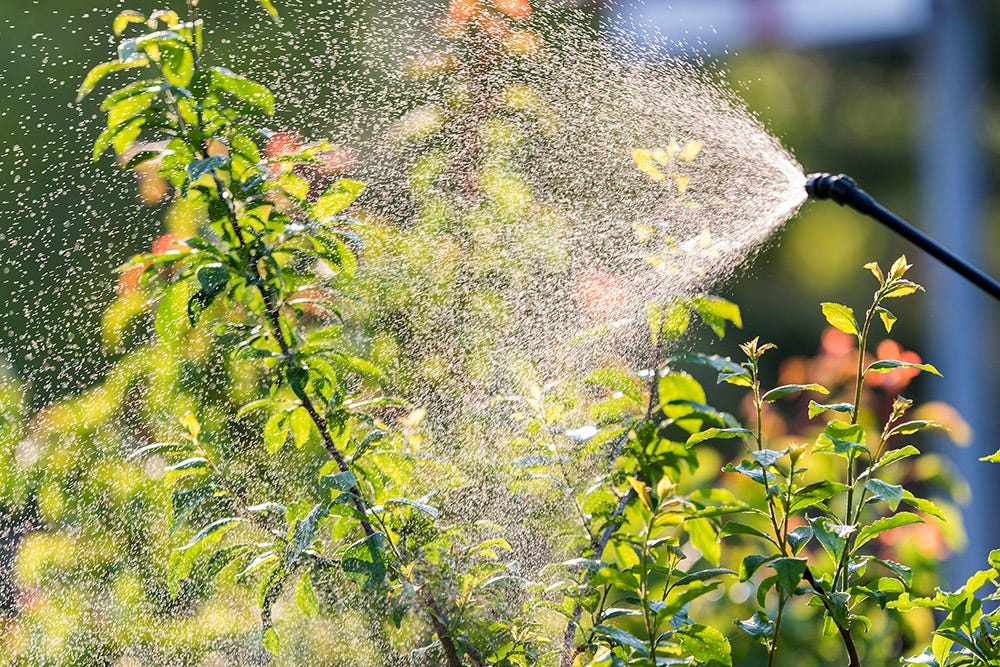- Maintenance tips & tricks
- 4-season garden care advice
- News from the gardening world
- STIGA innovations & new product launches
10 tips for using garden chemicals safely
Protecting your plants from pests is crucial but knowing the safest and most effective approach can be daunting, especially when it comes to using chemicals. We’ve created an easy-to-follow guide on how to use insecticides and pesticides safely, so you can be confident in your approach and application.

Choosing pest-resistant plants, ensuring good drainage and carrying out pruning are all great ways to boost plant health. But when these methods aren’t keeping the pests at bay, chemicals can be a useful ally.
1. Always read the label
When using any chemical products, make sure you read any vital safety information label thoroughly before you begin.
2. Match the product to the problem
Make sure you choose the correct product for your specific problem. If you are in any doubt, ask an expert for advice – using the wrong product could endanger your plants.
3. Follow the rules
It’s essential to adhere strictly to all application instructions. Some products are only suitable for particular plants. For example, not all pesticides are approved for use on edible plants and some insecticides can only be used on young plants.
4. Wear protection
Always wear protective equipment to cover any exposed parts of your body, particularly your eyes and mouth. Make sure you always wear gloves, protective glasses and a face mask when working with sprayers.
5. Trust the experts
Avoid a DIY approach when it comes to chemicals. Mixing products yourself is never a good idea. Branded products have been rigorously tested and only the safest are available for domestic use. If you need to use more than one product, always use them at separate times.
6. Wait for the storm to pass
Never spray chemicals on a windy day. This will protect you as well as any plants that could be damaged by accidental coverage.
7. Bee careful
Always avoid spraying chemicals if bees are present as some products can be toxic. It’s also important not to spray on open flowers as bees could inadvertently absorb chemical residue when collecting nectar.
8. Take your time
Make sure you stick to prescribed waiting times before you harvest crops. Rigorous research will have been conducted to analyse residue levels on plants across different time frames, so it is essential to adhere to these guidelines.
9. Recycle responsibly
Always follow instructions before recycling or disposing empty chemical containers. For example, concentrated pesticide and weedkillers that require dilution before use should be rinsed at least three times before being placed into household waste.
10. Keep away from children
Never spay chemicals if children or pets are nearby and keep them away until plants are dry.



















